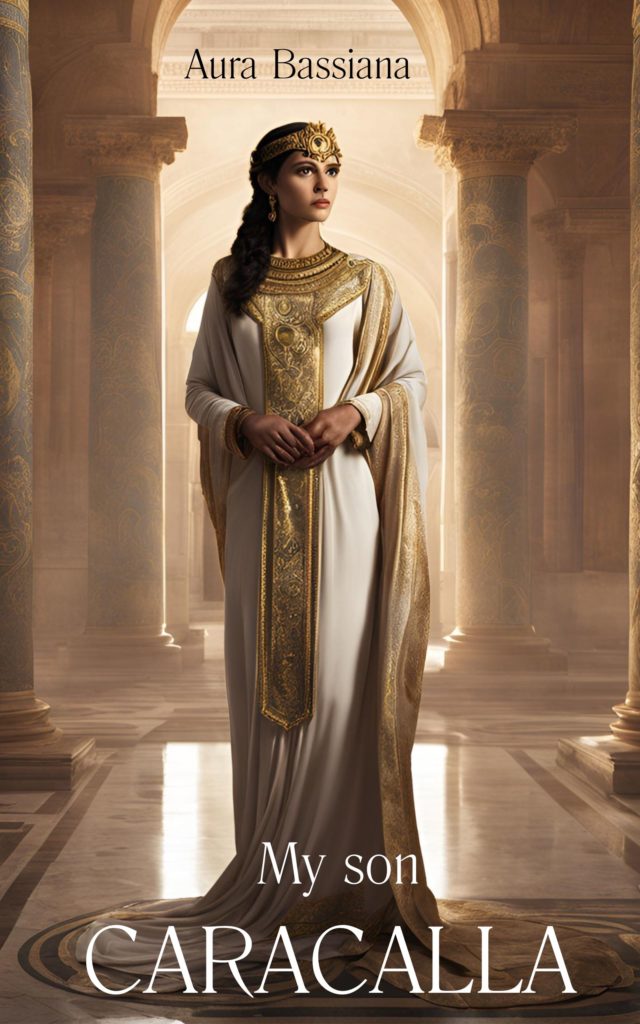Similar to Gladiator 1, the second part of ‘Gladiator’ is historically inaccurate. This applies not only to the basic story of the emperors Geta and Caracalla, but also to countless minor details that run through the film. Care for a small selection?
- Football did not yet exist in ancient Rome, so Lucius is unlikely to have played it with his comrades
- The Romans did not yet have megaphones
- The red puffs on the scarely animated monkeys are reminiscent of modern tranquilizer darts – complete nonsense
- Classic cafes with table decorations and newspapers, where senators and female spies meet, did not exist in this form either.
- An English inscription on the tomb of Decius Maximus Meridius is also rather implausible.
Further historical and logical inconsistencies in Gladiator 2
The Emperors Geta and Caracalla
The film shows the Emperors Geta and Caracalla in power. Their father Septimius Severus came from North Africa, their mother, Julia Domna, came from Emesa, today’s Homs in Syria. How likely is it that both emperors had red hair?
The two were rivals from an early age. As emperors, they hated each other. Each had their own court, they didn’t speak to each other and tried to kill each other. If you want to know more about their troubled relationship, read here.
However, I find the basic implementation of the emperors and their dynamic as brothers interesting and well done, regardless of the historical accuracy.

Sea battles in the Colosseum?
There were indeed sea battles in the Colosseum – there is archaeological evidence that the arena was sealed. However, it would have been difficult to release sharks there – these fish, which can grow up to 7 metres long, have to swim constantly to stay alive. How would the Romans have managed that? Furthermore, in the film, the enormous arena was flooded overnight – and the next morning after the naval battle, everything was completely dry again… In addition, not the noblest of horses were used to smooth the sand of the arena again.
The rhinoceros rider is also complete nonsense – and it is completely illogical that gladiators should have seriously tried to stand against a charging rhinoceros. Lucius’ strategy was the only sensible one. However, it would have been much more credible if prisoners had had to escape from an angry rhinoceros during a wild animal hunt.
Who was Macrinus really?
The historical Macrinus did not come from a family of senators, but he was also not the head of a gladiator school. He followed the classic Roman career path and rose to become Praetorian prefect under Caracalla. This made him one of the most powerful men in the Roman Empire. He accompanied Caracalla on a campaign against the Parthians, seeing himself in the tradition of Alexander the Great.
In 217, it was prophesied that Macrinus would become emperor. This was probably an intrigue, because it was foreseeable that the paranoid Caracalla would have Macrinus executed because of it. Therefore, Macrinus pre-empted him. When the emperor dismounted from his horse to relieve himself, he was murdered by several dissatisfied officers. It took several days of hesitation before the soldiers could be persuaded to proclaim Macrinus emperor. However, he did not remain on the imperial throne for long – his successor defeated him just one year later – and was dubbed the ‘epitome of perversion’ by the historian Cassius Dio…
In the film, Macrinus was played by Denzel Washington, who gave an outstanding performance.
Were the Romans interested in democracy in 215 AD?
In short, it didn’t matter anymore. Roman democracy had only existed until 46 BC – and even before that it only applied to a small number of Roman citizens. After the bloody civil wars that followed Julius Caesar’s death, Octavian became Emperor Augustus. He restricted the power of the Senate, which from then on had only a symbolic function. During the 3rd century, starting with Emperor Commodus and in the year of the four emperors in 193, when Caracalla’s and Getas father Septimius Severus finally prevailed, it became clear that the real power lay with the Praetorian Guard – the elite troops of the Roman Empire.

